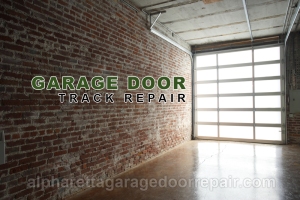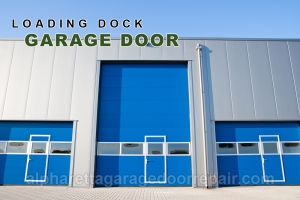We usually don’t think about the garage when someone mentions something about mold problems developing, but actually mold can infest your garage just like it can appear in any other part of your home. The good news is, if you think you may have garage mold, it’s usually less difficult to get rid of it from your garage than from other areas of your house. The worst problem about mold removal ~ besides using the proper disposal methods and taking the right safety precautions ~ is making sure you get all of it. When it comes to your entire place of residence, this can sometimes involve expensive excavating of the surrounding areas and walls. On the other hand, finding and removing mold from the walls of your garage is much easier than uncovering and eradicating mold from all the interior walls of your whole home.
The strategies you need to take for thwarting garage mold are the same as for stopping any other mold. Mold grows in a moist, dark, environment that’s unventilated. Accordingly, you can forestall mold by 1) keeping your garage as dry as possible, 2) not allowing the garage to be totally dark, and 3) making sure it’s continuously well-ventilated.
Stop the Mold from Growing in Your Garage Right Now
If your garage isn’t made out of metal or some other mold-hindering materials, then you need to be more meticulous to keep mold from ever getting into your garage. First off, reduce the moisture content of the air in the garage as much as you possibly can. You can even use an air dehumidifier. The easiest way is to simply make it a daily goal to keep the garage well-ventilated: Keep the garage door open every time you’re there, and that will regularly air it out.
You need to keep all moisture out, so that mold won’t have a chance to form in the first place. Water can obviously enter your garage if there are leaks anywhere. Therefore, always keep the roof of your garage in good condition. Allowing fresh air in, and maintaining your garage in general, will stop garage mold from developing. Sunlight will also help keep any mold away.
Garage Mold Removal
Garage mold can cause respiratory problems for those who are sensitive to it. If that’s the case, then eliminate it as soon as possible. Removing mold from your garage is not an easy task. The process can stir up mold spores, which can cause major irritation. Make sure you avoid any complications: Hire a licensed professional to do a thorough job.
If You’re Starting from Scratch
If you’re building a new garage, then make it from materials that are inhospitable to mold. First of all, construct your garage using metal, not wooden studs. Metal studs will require additional skills and tools, but a skillful and experienced contractor will not have any trouble constructing a premium-quality garage.
When it comes to siding, vinyl or pre-coated aluminum are optimum for the walls of your garage. If you choose materials other than wood, you’ll avert the possibility of mold spores, and also keep away any wood-eating pests.
Maintain Your Garage Door
A garage door, believe it or not, plays a major role in your home’s appearance and value. If you keep your garage door in fine condition, you’ll protect your garage for many years. An insulated garage door makes the most sense for preventing mold.
How long-lasting will your garage door be? If the construction materials are of exceptional quality, your garage door will be more resilient than average. Garage doors nowadays are of better quality than those of generations ago, because they’re manufactured according to stricter safety standards. For example, a top-quality garage door provides an effective barrier for heat-transfer reduction. Hardware and door sections of superior-quality garage doors often come with better warranties.
Keep it clean. Your garage door will last longer when you wash it periodically. On both sides, use a sponge and clean water with mild dish soap. Rinse well. Include the garage door opener sensor eyes: Wash with a dry, clean cloth. Keep the area around the sensors free of cobwebs.
Keep it in working order.
1 Operate the garage door one full cycle (open and shut), making sure it moves smoothly.
2 Look at the automatic reversing garage door opener feature: When the door’s on its way down, grab it, giving it some resistance, to see if it reverses. If it doesn’t, the opener’s sensitivity needs to be adjusted.
3 If your garage door doesn’t reverse, or if you see other issues, hire an expert.
Keep it lubricated. Without lubrication, your garage door springs will rust, and the coils will bind. Always keep your garage door springs, rollers, and hinges lubricated. Lubricate the springs annually, before winter comes. Don’t use anything too heavy, as it will attract dirt and grime. Use a reputable brand; a light coating is all you need. Check your garage door opener’s main gear, too: Lubricate it with white lithium grease.
Keep it balanced. Check your garage door’s balance twice a year:
1 Disconnect the garage door from the opener. (Pull the rope down that hangs from the opener, to disconnect the door, so you can lift it manually.)
2 The garage door should balance at about 3 or 4 feet from the floor. If there’s resistance, if it’s too heavy, or if the door doesn’t stay up, the spring needs adjusting by a professional.
3 Read the owner’s manual for instructions on how to reattach the garage door to your garage door opener.
Follow a regular maintenance schedule. Once a month, inspect the components of your garage door system. Replace any worn parts, and tighten any loose bolts. Investigate if you hear any unusual noises when your garage door opens or shuts. If you see any issues with pulleys, springs, wires, or cables, it’s time to hire an expert. Schedule an annual inspection with a dependable garage door repair service.
NEVER adjust the spring tension on your garage door by yourself! Garage door springs are under pressure, so if not serviced correctly, they may cause injury, and even death. The cables, drums, and bottom brackets (which the cables are attached to) all pack a wallop. If any components require adjusting, repair, or replacement, find a qualified garage door technician. If you reside in Alpharetta, Georgia, hire a reputable company such as Alpharetta Garage Door Repair.
Article source here: IF YOU HAVE ANY CONCERNS ABOUT MOLD SPORES IN YOUR GARAGE, HERE’S WHAT TO DO



No comments:
Post a Comment